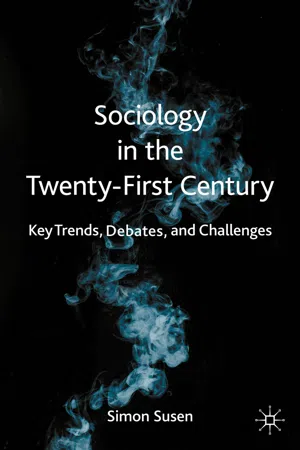- 1.The ‘violent imperial expansion of the European and Anglo-American states’4 across the world in the nineteenth and twentieth centuries, particularly in Africa and Asia, constitutes a large-scale conglomerate of historical processes generally described as colonization and associated with the era of colonialism. The acquisition, establishment, and maintenance of colonies entail the systematic exploitation of territories and populations by foreign powers. By definition, colonialism represents a form of imperialism, to the extent that it sets up an unequal relationship between ‘the colonizers’ and ‘the colonized’—that is, between an exogenous and oppressive force and an indigenous and oppressed population. ‘Beginning in the late nineteenth and continuing through the early twentieth century, powerful states like England, France, Germany, the USA, Belgium, Italy, and others mounted new territorial assaults upon Africa and Asia, creating what has become known as the period of “high imperialism”.’5 Indeed, it took only a few decades for ‘modern colonial empires’6 to rule almost ‘all of the globe’7 and thereby spread their imperial wings to exercise their hegemonic power over the political, cultural, ideological, linguistic, economic, military, demographic, and territorial organization of foreign lands and regions.
- 2.Shortly after the end of World War II in 1945, a historically significant process commenced, which continued through the 1960s: decolonization. This tension-laden dynamic was characterized by ‘imperial retrenchment and decline’8 and, consequently, by ‘the dismantling of those very same colonial empires that had been expanding previously’.9 To be sure, this period did not necessarily signal the end of imperialism; rather, it indicated the transformation of the international division of power into a global system in which the label ‘colony’ and the reality of ‘colonialism’ were no longer ideologically defensible, but in which transnational structures of domination continued to exist.10 Irrespective of the question of whether or not a neoimperialist period succeeded the age of imperialism, decolonization on a global scale implied that, from the 1950s onwards, a ‘multitude of independent nation-states appeared’,11 especially in the Southern hemisphere. The protagonists and representatives of these postcolonial states were...

- English
- ePUB (mobile friendly)
- Available on iOS & Android
About this book
This book examines key trends, debates, and challenges in twenty-first-century sociology. To this end, it focuses on significant issues surrounding the nature of sociology ('What is sociology?'), the history of sociology ('How has sociology evolved?'), and the study of sociology ('How can or should we make sense of sociology?').
These issues have been, and will continue to be, essential to the creation of conceptually informed, methodologically rigorous, and empirically substantiated research programmes in the discipline. Over the past years, however, there have been numerous disputes and controversies concerning the future of sociology. Particularly important in this respect are recent and ongoing discussions on the possibilities of developing new – and, arguably, post-classical – forms of sociology. The central assumption underlying most of these projects is the contention that a comprehensive analysis of the principal challenges faced by global society requires the construction of a sociology capable of accounting for the interconnectedness of social actors and social structures across time and space.
This book provides a cutting-edge overview of crucial past, present, and possible future trends, debates, and challenges shaping the pursuit of sociological inquiry.
'Simon Susen – one of the most knowledgeable scholars in the contemporary social sciences – examines the key challenges with which sociology is confronted today. This book is a must-read for professional sociologists as well as for those studying the subject.' – Luc Boltanski, École des Hautes Études en Sciences Sociales, Paris, France
'Simon Susen provides a balanced update on sociology's theoretical, methodological, and institutional resources as well as challenges in today's complicated local and global social worlds. Fortunately, he has innovative and practical recommendations for ensuring the cutting-edge relevance of sociological thinking. This book is an excellent choice for undergraduate and postgraduate students as well as for the general reader.' – Sandra Harding, University of California, Los Angeles, USA
'A comprehensive and judicious account of the intellectual and material state of sociology, based on omnivorous reading and incisive analysis. The writing is beautifully clear, and the bookis a major contribution to the self-understanding of the discipline.' – William Outhwaite, Newcastle University, UK
Frequently asked questions
- Essential is ideal for learners and professionals who enjoy exploring a wide range of subjects. Access the Essential Library with 800,000+ trusted titles and best-sellers across business, personal growth, and the humanities. Includes unlimited reading time and Standard Read Aloud voice.
- Complete: Perfect for advanced learners and researchers needing full, unrestricted access. Unlock 1.4M+ books across hundreds of subjects, including academic and specialized titles. The Complete Plan also includes advanced features like Premium Read Aloud and Research Assistant.
Please note we cannot support devices running on iOS 13 and Android 7 or earlier. Learn more about using the app.
Information
Part IIntimations of Postcoloniality
1. Postcoloniality and Sociology
Table of contents
- Cover
- Front Matter
- Part I. Intimations of Postcoloniality
- Part II. Intimations of Globality
- Part III. Intimations of Canonicity
- Part IV. Intimations of Historicity
- Part V. Intimations of Disciplinarity
- Part VI. Intimations of Hegemony
- Part VII. Intimations of Reflexivity
- Correction To: Epilogue: Critical Remarks
- Back Matter